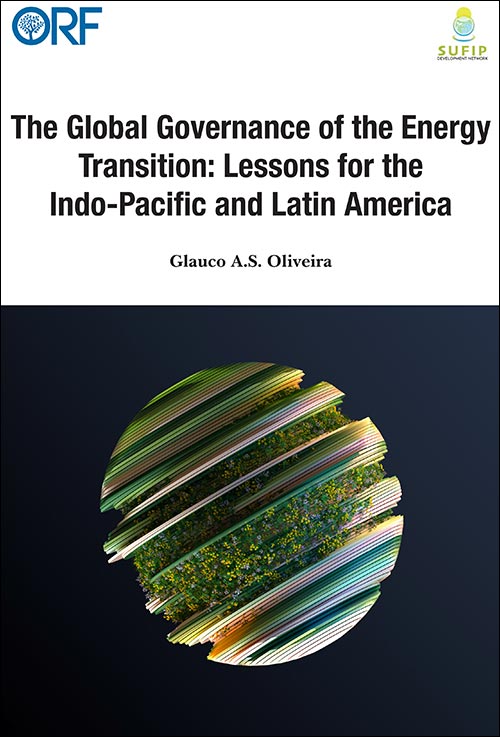India and China cannot afford to be used against each other by interested third parties. They must rather focus on common threats to regional progress. In a new world, India and China could be powerful allies, says a senior Chinese strategic scholar.

The United States continues to forge links in the Asia Pacific, and may have hidden intentions in the region, but China has always maintained that India’s policies are independently developed, according to a senior strategic scholar from China.
Participating in a roundtable on India-China relations at Observer Research Foundation on March 22, 2013, Mr. Ma Jiali, Executive Deputy Director of the Centre for Strategic Studies, Beijing, said that India and China are both giants and so, they must make sure their relationship is a comfortable one.
He said smaller or weaker countries are lured by the prospect of American protection and trade and will tilt with the US. The prospect of a good relationship between China and the US is threatened by several contentious issues like the status of Taiwan, the TPP and the trade deficit between the two countries.
Mr. Ma Jiali said there is also a danger that the US-India relationship will have a negative impact on the India-China relationship. China is also worried about reports coming out of India that suggest India is looking for allies against China. Goodwill between India and China is jeopardised by sensationalist and negative media coverage.
Mr. Ma Jiali said India and China are developing as the major players in Asia and so it is crucial for them to sustain and nourish a mutually beneficial working relationship. Neither can afford to be used against the other by interested third parties. They must rather focus on common threats to regional progress. In a new world where the old powerhouses are in decline, India and China could be powerful allies.
Mr. Ma Jiali was responding to the points raised by Dr. Rajeswari Rajagopalan, ORF Senior Fellow, during a discussion on the US ’Pivot to Asia’. She said the Indian perspective was that the US had never left the region, and this was merely a step to reassure its friends and reassert itself after the overreaches of Afghanistan and Iraq. The idea that the pivot is China-centric is only partially true. The US has a long and complex history with Russia, tensions with North Korea, and other interests in the area.
China has been pragmatic in keeping up relations with the US, yet maintaining a degree of wariness. In other ways, however, China has mishandled its foreign and security policy vis a vis its smaller neighbours.
She said while China claimed to be rising peacefully, action on the ground suggested otherwise. Dr Rajagopalan said that India’s UPA government welcomed the pivot to Asia, but was also monitoring China’s reaction to India’s embrace of the US. Even countries traditionally adversarial to the US acknowledge the utility of keeping the US in the region as a stabilising factor. Eventually, the relative decline of the US will force others to share the security burden; until then the balancing act in the region will continue.
Another topic discussed was the South China Sea. Mr Mao Jikang, Associate Research Fellow at the Academy for World Watch (AWW), Beijing, said China’s actions in the South China Sea are closely linked to US deployment of naval forces and policies to contain China, according to a Chinese scholar, Mr Mao Jikang, of the Academy for World Watch (AWW).
Mr Mao Jikang said China was very reluctant to use military force on countries with weak navies, like Vietnam. He said the threats issued to Japan over the Diaoyu Islands were clearly addressed to a significant naval power.
Mr Mao Jikang’s comments were in response to ORF Senior Fellow Dr. P.K. Ghosh’s observations that there was worldwide concern over the brinkmanship seen in the region. Dr. Ghosh said there has been a marked shift in Chinese foreign policy, with the old dictum of biding one’s time abandoned in favour of more assertive policies.
Introducing the contentious issue of the South China Sea, Dr. Ghosh said the new policy may be a sign that China has ’arrived’, or to make up for ills suffered in the past. Whatever may be the intent, in reality China’s aggressiveness is causing any goodwill towards it to dissipate. Dr. Ghosh said there is a lack of consensus in ASEAN and other groups on how to deal with the issue, partly because China insists on bilateral talks rather than a multilateral approach. The consequences for trade and navigation in the area if conflict flares up are unpredictable, he pointed out.
Mr Mao Jikang said China’s perception of the South China Sea issue was a little different and its actions are related to efforts to contain his country and the US deployment of naval forces. He said China was very reluctant to use military force on countries with weak navies, like Vietnam.
He said politicians in China have to content with growing popular nationalistic fervour. Any compromise in the South China Sea is seen as losing face and losing Chinese integrity. China is using purely diplomatic means to navigate the ASEAN terrain, in the interests of preventing a consensus which would be damaging to China. This was to be contrasted with underhanded measures like the Trans-Pacific Partnership (TPP), which were seeking to unfairly constrain China economically.
The next topic on the table was cooperation through BRICS (Brazil, Russia, India, China and South Africa). ORF Senior Fellow Nandan Unnikrishnan this forum has come a long way and during the 5th Summit of its leaders in Durban, several economic agreements would be signed and also a formal decision to start a BRICS development bank. However, many details are to be worked out regarding the funding, structure and location of the bank.
Mr Unnikrishnan said that BRICS leaders were beginning to understand that cooperation extends beyond economic issues, and were discussing weapons of mass destruction, climate change, energy security and terrorism among other topics. This is not to say that there is agreement across the board. Member countries have diverged on important foreign policy issues and in United Nations voting. Any discussion of UN Security Council reform is stymied because Russia and China do not want to see their power diluted. Nevertheless, many argue strongly that BRICS needs to inject politics into its programme to stay relevant.
Professor Guo Ming, Director of the Regional Security and Cooperation Centre at the AWW, agreed that BRICS was developing well. He said most estimates of economic growth were overly conservative when it came to BRICS, and that its combined GDP would be the largest in the world by 2020. There are problems with the multilateral global economic mechanism - the latest G20 finance ministers’ meeting was unable to reach any kind of consensus - which BRICS has largely been able to avoid. Perhaps carried away by success, BRIC (as it then was) expanded too quickly. The GDP of South Africa is not comparable to that of the other four members, leaving the orientation of BRICS in question -- is it a purely economic union, or a political one too?
He said there are discussions about admitting other countries, notably Egypt and Indonesia, but India and China should carefully consider whether that will be in their interests. There are currently two trade agreements which BRICS is not a part of: the proposed Transatlantic Free Trade Area (TFTA) to link North America with Europe, and the previously mentioned TPP. If they become successful, BRICS will be excluded, with the manufacturing and factory-work sectors hit heavily. India and China have similar industry structures, and will be affected particularly. Finally, BRICS state leaders meet only once a year, which is not sufficient to manage the ambitions of the organisation. Focus should remain on the economic coalition, with the dream of the development bank realised, before political consolidation is attempted.
(This report is prepared by Anahita Mathai, Research Intern, Observer Research Foundation, Delhi)
The views expressed above belong to the author(s). ORF research and analyses now available on Telegram! Click here to access our curated content — blogs, longforms and interviews.




 PREV
PREV

